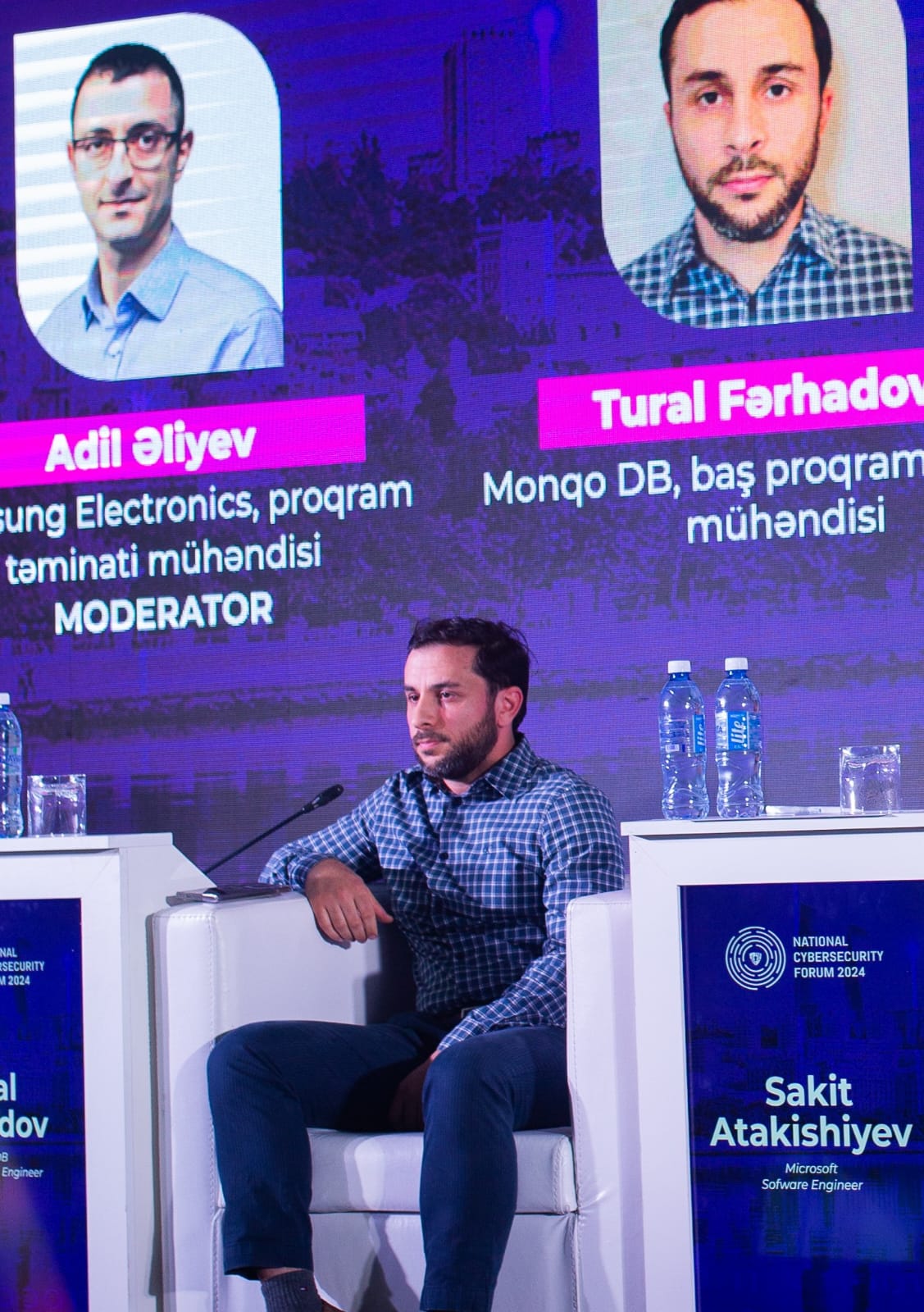
We present an interview with our compatriot, Tural Farhadov, a Senior Software Engineer at MongoDB and a member of the "Cyber Diaspora."
25.02.2025

Good day!
Our interviewee, Tural Farhadov, graduated from the Faculty of Applied Mathematics at Baku State University in 2012. He then pursued a master's degree in Computer Science in Melbourne, Australia. During this time, he also began his professional career, working at several IT companies in Baku. Since 2018, he has continued his career in Vancouver, Canada, at Microsoft. He is currently working at MongoDB.
1. What were the main factors that motivated you to pursue a career in this field?
My interest in programming started forming during my school years. My passion for mathematics, the presence of many programmers in my surroundings, and the nature of their work further fueled my curiosity about this field. As I delved deeper into programming over time, I began to see its full potential more clearly. The ability to automate repetitive tasks, in particular, inspired me to continue working in this field.
2. Why did you choose to work at MongoDB? What does your current role involve, and what are your future plans?
MongoDB is known as an innovative company in the database industry. Since the 1970s, it has aimed to revolutionize structured database approaches by introducing cutting-edge technological solutions. Today, MongoDB holds a leading position in the NoSQL market. During my interview process with the company, I gained a deeper understanding of its strong potential and decided to join with a long-term vision for professional growth. Based on mutual agreement, I have now been working as a Senior Software Engineer at MongoDB for four years.
Although the company specializes in databases, my role is somewhat different. I work in the DEVPROD (Developer Productivity) department, where my focus is not on directly contributing to the database itself but rather on solving challenges related to safely and efficiently delivering database products to customers. Our primary goal is to ensure security and integrity within the Secure Software Development Life Cycle (SSDLC).
In today's era, where cyberattacks are widespread, this is a critical issue across the entire IT industry. Even a small vulnerability in this area can result in a company losing billions of dollars in just a few days. For instance, the well-known company SolarWinds faced such consequences due to an SSDLC attack.
Looking ahead, I believe this field will become even more relevant alongside artificial intelligence. While AI continues to enhance productivity, security will always remain a top priority for companies.
3. What have been the biggest challenges in your career, and how did you overcome them?
In the early years of my career, one of the biggest challenges I faced was the language barrier. Since most literature in our field is in English, having a strong command of the language is crucial. Unfortunately, the English education I received in both secondary school and university was not at a high level. Because of this, I dedicated a significant amount of time to improving my language skills and eventually decided to study abroad to accelerate my learning process. My key advice to young professionals in this field is to prioritize developing their English skills, as mastering the language will open many opportunities for them.
When people think about programming, they often imagine engineers sitting behind computers for hours, writing code. In the beginning, I also believed that coding was the only essential skill for career growth. However, as the IT industry rapidly expanded and projects started involving not just a few but thousands of engineers, new career paths emerged.
For example, in my current role as a Senior Software Engineer, my responsibilities extend beyond just architecture design and coding. I also monitor existing systems, stay up to date with industry innovations, propose new projects when necessary, and communicate their importance to leadership.
To succeed in these areas, strong verbal and written communication, presentation skills, and technical leadership abilities are essential.
I encourage young professionals to develop these skills comprehensively. As artificial intelligence becomes more widespread, those who focus solely on mechanical tasks will be quickly replaced.
4. What skills do you consider most essential for aspiring software engineers?
One of the most critical aspects is mastering the fundamental principles of computer science. The experience of the past 70–80 years has shown that core knowledge remains relevant regardless of technological advancements. At the same time, the rapid evolution driven by artificial intelligence has the power to transform existing structures at their core.
As I previously mentioned, a well-rounded approach allows individuals to adapt to new directions at any time. Therefore, I strongly recommend that young professionals develop their research skills and closely follow industry innovations. This mindset will help them navigate their career paths more effectively.
5. What are the main challenges in cybersecurity and database security, and what steps should be taken in Azerbaijan to address them?
Currently, one of the most pressing topics in software security is SSDLC (Secure Software Development Life Cycle). This field focuses on ensuring security at every stage, from the repository where the code is stored to its delivery to the customer. While a completely secure solution does not exist, major tech companies are now providing customers with SBOMs (Software Bill of Materials) that cover all aspects of software— including the repository where the code is stored, CI/CD systems used for verification, the compilation environment, and other key details involved in software development. This significantly simplifies software security.
With SBOMs, customers can leverage various cybersecurity tools to check whether a software product meets their security standards. If software producers in Azerbaijan adopt these security practices, I am confident they will greatly enhance the security of their products. The democratization of cybersecurity in recent years has made it much easier to implement these practices, enabling companies to improve their product security without requiring dedicated specialists.

